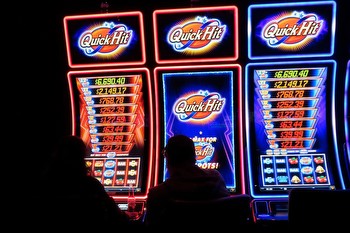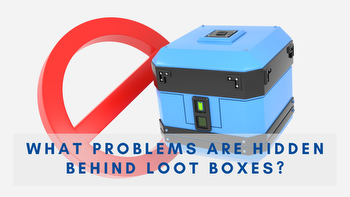As Lootbox Mechanics Become More Widespread, Where is the Line Between Online Gaming and iGaming?

Loot boxes and gambling being put on the same scale. One of the connections that create the most controversy in the video game industry, and has been doing so for the past few years, ever since this mechanic became more widespread. A connection that is not yet very clear, probably because it hasn’t been analyzed or studied enough.
However, there is already some research that is tackling this issue and reaching the conclusion that loot boxes are indeed akin to gambling on a psychological level. A study carried out by researchers at the universities of Plymouth and Wolverhampton, and commissioned by UK’s GambleAware charity, compiles existing research to examine the strength of relationships between the in-game random prizes and gambling behavior.
Individuals who go to the casino and the ones who play a video game with loot boxes experience similar emotions when playing. Several other studies on the matter – which attempted to decipher what goes through a person’s mind when they are about to open one of these surprise boxes – concluded that loot boxes have a veiled mechanic that is extremely similar to the mechanics found in slot machines.
“Many gamers do ascribe discrete financial values to loot box contents – based on purchase or resale price – suggesting that many loot boxes meet existing criteria for gambling regulation,” the authors wrote. “Our research therefore demonstrates that games developers, unwittingly or not, appear to be generating outsized loot box profits from at-risk individuals (these are likely to include both people with gambling problems or problematic patterns of video gaming) – but not from wealthy gamers.”
Another study, conducted by researchers at University of Cordoba, in Spain, reported that, “there comes a certain point where, as much as you want to keep moving forward, you can’t. This creates a disparity because the only way to achieve it is to open loot boxes”. This is something similar to what happens with games of chance, in which to get good profits, it’s necessary to invest a lot of money. Something that is not illegal, just like casinos are not. In fact, if we take a look at the iGaming industry, we’ll see that the number of legal online casinos in the US is quickly increasing, according to Time2Play, and the activity has become an entertainment option just like any other.
Some enlightening stats
The studied conducted by researchers at the universities of Plymouth and Wolverhampton found:
- Up to 40 percent of the 93 percent of kids who play video games have opened loot boxes;
- About 5 percent of gamers are responsible for half of the income generated by the boxes;
- Twelve out of thirteen studies on the subject have found “unambiguous” links to compulsive gambling;
- Young males are the most likely to utilize loot boxes, with lesser education and younger age being associated with increased usage.
Many games employ a “psychological nudge” to persuade users to buy loot boxes, according to the report, such as the fear of missing out on limited-time products or special bargains.
Preemptive measures are the way
Misuse is what has to be corrected, as in everything. And in this sense, countries in the European Union have been limiting loot boxes and employing a restricted legal formula so that loot boxes don’t generate adverse effects on gamers’ overall well-being. We have seen it in video games like FIFA or Fortnite. These companies have been able to adapt to the new changes, although there are still some misgivings about the way they apply lootbox mechanics.
In recent years, the FIFA franchise has included a format that in the video game world could be called “pay to win” (see the debate here). Users who play online must build their own team by collecting players cards that can be obtained randomly in packs. These packs are purchased with in-game coins, which can be obtained through micropayments with real money. That means the more money you spend on those packs, the more likely you are to build a better team. Since this is one of the most popular modes of the game, EA Sports could at least warn about it in its content.
One of the measures suggested by specialists is to include warnings and labels on games packages, as well as percentages and probabilities of better or worse cards coming out. Besides, it should present the possibility of previewing some of the items, so that players can check what’s inside before deciding whether to buy it or not.
Something similar to what Fortnite has done with its chests and what other games are doing. In reality, they are trying to move away from the concept that most links them with gambling, but they also cannot make their online gameplay too predictable.
However, even the researchers themselves say that it is still too early for this kind of report to become a reference when it comes to legislating and regulating video games. They assure that it has not been studied enough to give an unequivocal answer.



































